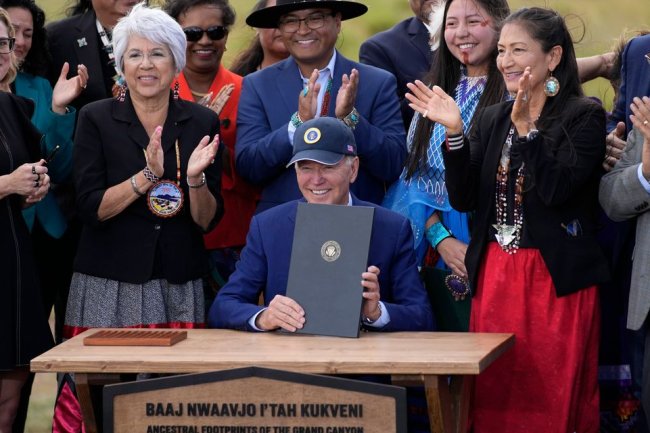A Rebuke to Biden-Tech Censorship
The Fifth Circuit issues a landmark on collusion against free speech. By The Editorial Board Sept. 11, 2023 6:38 pm ET Photo: Getty Images/iStockphoto The Fifth Circuit Court of Appeals ruled Friday against federal officials for colluding with tech platforms to suppress speech, but you’d hardly know it from the limited press coverage. The decision in Missouri v. Biden deserves more attention because it defines the constitutional limits to coordination between government and private actors and may be headed to the Supreme Court. Missouri and Louisiana—joined by individuals whose posts opposing government views o


Photo: Getty Images/iStockphoto
The Fifth Circuit Court of Appeals ruled Friday against federal officials for colluding with tech platforms to suppress speech, but you’d hardly know it from the limited press coverage. The decision in Missouri v. Biden deserves more attention because it defines the constitutional limits to coordination between government and private actors and may be headed to the Supreme Court.
Missouri and Louisiana—joined by individuals whose posts opposing government views on Covid were censored—sued various federal officials for violating their First Amendment rights. Federal Judge Terry Doughty ruled against the government on nearly all points. The three-judge Fifth Circuit panel largely upheld his findings of fact and law while narrowing his injunction.
The unsigned 74-page opinion begins by detailing the unprecedented coordination during the pandemic between government agencies and social-media platforms. Tech employees “attended regular meetings” with government officials and “seemingly stepped-up their efforts” to remove content to appease them, the decision explains.
Platforms “gave the officials access to an expedited reporting system, downgraded or removed flagged posts, and deplatformed users,” the opinion says. And they “changed their internal policies to capture more flagged content and sent steady reports on their moderation activities to the officials.”
The Biden Administration argued that the tech platforms acted independently, and that communications by federal officials are protected “government speech.” The Fifth Circuit disagreed, holding that officials crossed the First Amendment line by coercing platforms with threats of antitrust action and legal liability for user content under Section 230.
A private party “is ‘not ordinarily constrained by the First Amendment,’” the Fifth Circuit explains. “That changes, though, when a private party is coerced or significantly encouraged by the government to such a degree that its ‘choice’” if “made by the government would be unconstitutional.” The court calls this the “close nexus test.”
Its decision analyzes in depth how government actions violate the First Amendment under this test. “Significant encouragement requires ‘[s]omething more’ than uninvolved oversight from the government,” the ruling says, citing the Supreme Court’s Blum (1982) precedent. Yet federal officials were far from “uninvolved” in content decisions.
The Fifth Circuit distinguishes the complaints in Missouri from Robert F. Kennedy Jr.’s lawsuit against Sen. Elizabeth Warren for asking Amazon to modify its algorithms to make his book harder to find. The Ninth Circuit Court of Appeals rejected that suit this year. Unlike the facts in this case, Ms. Warren’s letter was framed as a “request rather than a command” and she “lacked regulatory authority” over Amazon. The Senator’s letter also “contain[ed] no explicit reference” to “adverse consequences,” and “there was no indication that Amazon perceived the message as a threat.”
The nuanced opinion dismisses complaints against Anthony Fauci
and other National Institutes of Health officials because they had merely “promoted the government’s scientific and policy views and attempted to discredit opposing ones—quintessential examples of government speech that do not run afoul of the First Amendment.”The Fifth Circuit also narrows Judge Doughty’s injunction by spelling out how government officials can communicate with platforms without violating the First Amendment. For instance, they could ask social media companies to “Be on The Lookout” for certain posts provided there’s no intimidation.
The careful, detailed opinion sets the case up well for a Supreme Court appeal if the Biden Administration has the nerve. It may prefer to quit while it’s behind. In either case the ruling is a landmark that protects free speech from the government’s current method of laundering its censorship through private platforms.
Despite efforts to silence him, 2024 Democratic Presidential candidate Robert F. Kennedy Jr. defended free speech and the First Amendment at a hearing into federal government censorship. Images: Bloomberg News/Getty Images Composite: Mark Kelly The Wall Street Journal Interactive Edition
What's Your Reaction?






















